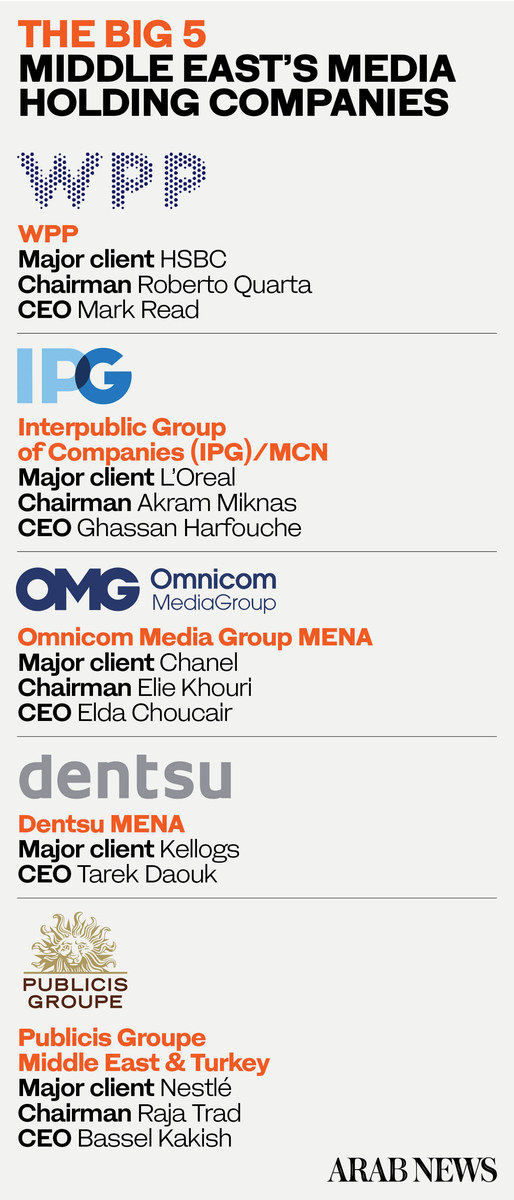LONDON: One of the most prominent figures in the advertising industry worldwide has warned of the end of the media holding companies model, which has been dominant for decades.
In an interview with Arab News, Sir Martin Sorrell also highlighted that Middle East affiliates of these groups were far from exempt.
“Well, there are four (five) big holding companies, which I think dominate actually in a Middle Eastern context, the market, at least currently. I don’t think that will be the case in the future,” he told the "Frankly Speaking" presenter Katie Jensen.
“Those would be IPG, that would be Omnicom. You’d probably have to include Dentsu in there, as well as WPP and Publicis.”
Sorrell is renowned for being one of the founders of advertising giant WPP and, under him, many believe it to have lived its heyday. He was the company's longest-serving CEO from 1985 to 2018 before abruptly leaving due to claims of misconduct.
Asked if his anti-holding company comments were directed specifically at WPP, and whether it was a matter of a personal vendetta, he said one only had to look at their numbers.
“I think, just look at the facts,” he said. “Just look at the stock market performance against the indices. And in fact, it’s clear for all to see if you look at the performance over the last four or five years."
As for why media holding companies would not work, he said the reason was the market was “somewhat suspicious of the long-term structural performance of their models.”
“I think that what the stock market is signaling in relation to holding companies is a general suspicion, a structural suspicion about their longevity.”
Currently, these groups operated with several major subsidiaries that Sorrell claimed “don’t work well together.”
“They’ve made them more complicated because they’re more vertically driven and the verticals don’t work together to solve problems for clients, or to provide solutions for clients,” he added. “From a personal point of view, I think probably a breakup of those companies will probably be the best response.”

Sorrell currently runs the London-based S4 Capital, a new-age digital advertising agency, and has recently opened an office in Saudi Arabia where he serves major clients such as NEOM and Qiddiya.
“The scale of resources and the commitment is so great, and the quality of the resources are so significant, that I think they will be successful in the longer run,” Sorrell said about Saudi Arabia’s reform push as it continues with Crown Prince Mohammed bin Salman’s Vision 2030.
“So I think it’s a question of educating the world to the nature of the projects, the nature of the ambition.”
Sorrell reiterated what he said in a 2021 Arab News interview, that he believed Riyadh would be the next advertising capital of the region, a title which has exchanged hands from Beirut to Dubai before finally ending in the Kingdom.

Sorrell is a big believer in growing local talent, as opposed to relying on imported expatriates, and he said he was trying to achieve this in his Saudi operations.
“One has to develop national talent. But, of course, given the pace of development that’s being contemplated and the very ambitious goals that the government wishes to achieve, it probably has to be done by a mixture,” he said.
“We’re putting in place a judicious mixture of talent from outside the region and inside the region.”














